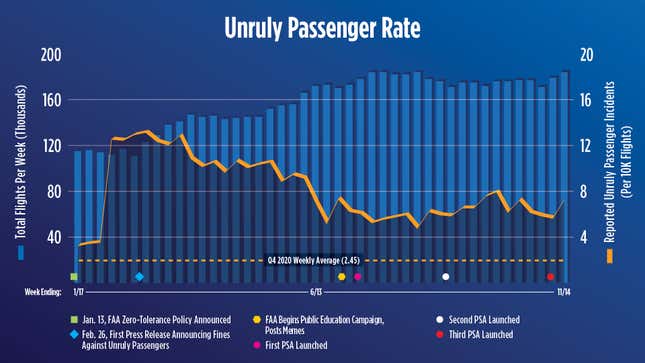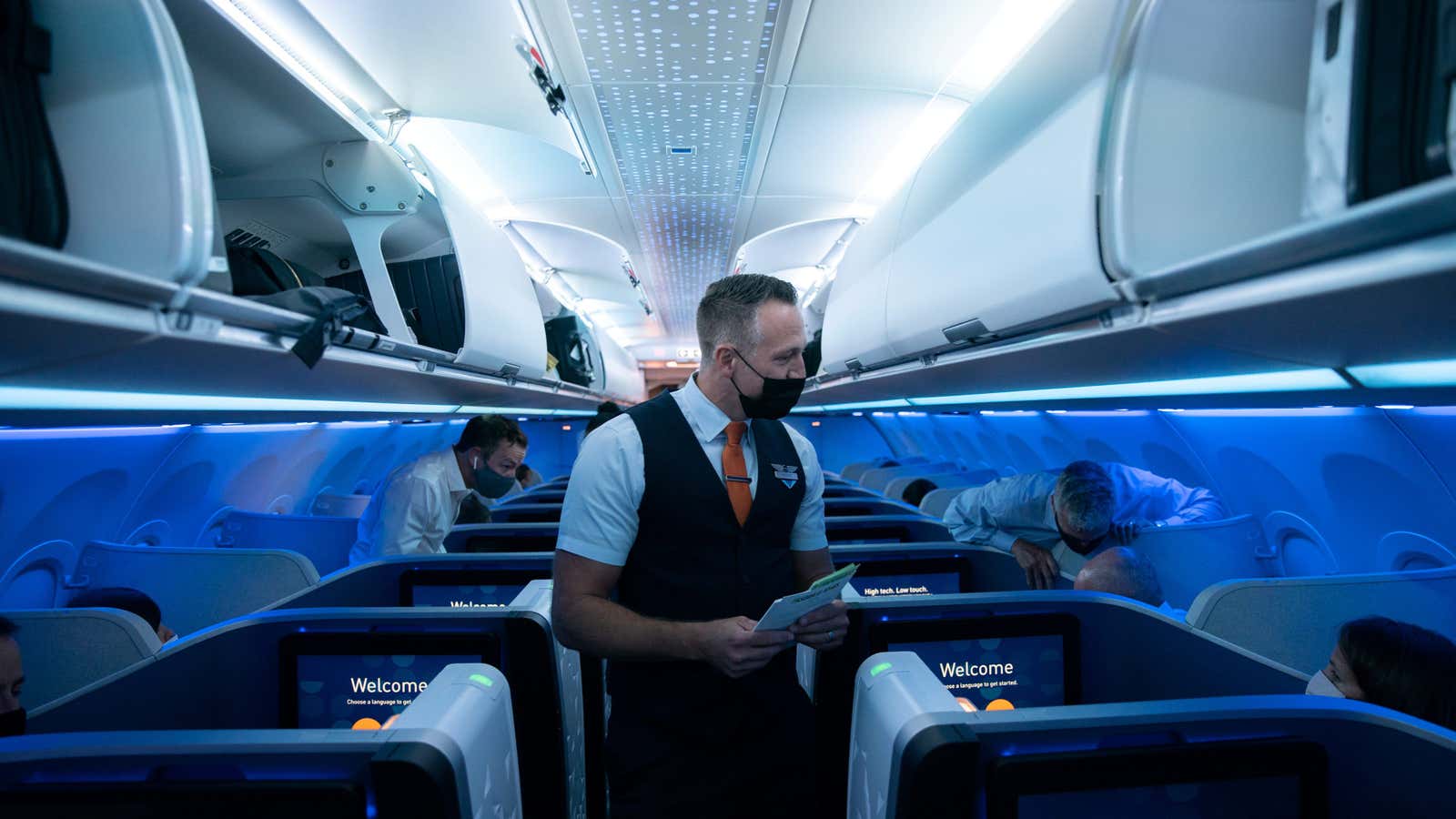As holiday travel picks up, and with complaints about unruly passengers on the rise, the US justice department is trying to keep the peace up there by telling prosecutors to come down hard on federal crimes on commercial aircraft.
“Passengers who assault, intimidate, or threaten violence against flight crews and flight attendants do more than harm those employees; they prevent the performance of critical duties that help ensure safe air travel,” attorney general Merrick Garland wrote in a Nov. 24 memo. “Similarly, when passengers commit violent acts against other passengers in the close confines of a commercial aircraft, the conduct endangers everyone aboard.”
The directive comes more than a month after president Joe Biden said the federal agency was looking into these matters.
While disruptive passenger behavior on planes has been surging this year, legal repercussions have lagged. Flight crews reported more than 5,000 incidents but the Federal Aviation Administration (FAA) has taken action against fewer than 230. Only 37 cases have reached the justice department for criminal review. Airlines and unions have been urging the administration to take stricter action for months now.
Unruly behavior on flights has risen in 2021
A July survey revealed that 84% of flight attendants had dealt with disruptive passengers in the first half of 2021, and 17% had been physically assaulted.
As of Nov. 23, the FAA had received 5,338 reports since the start of the year, the majority of them stemming from resistance to covid rules. Almost three-quarters of the incidents were about masks. The authority instituted a zero-tolerance policy against mask noncompliance in January and doubled the fines in September, but aggressive behavior from passengers continued.

By mid-August, the FAA, which can dole out fines of up to $50,000, had already levied civil penalties upwards of $1 million. On Monday (Nov. 22), the agency imposed $161,823 in civil penalties against eight passengers for alleged alcohol-related unruly behavior, including sexual assault, verbal abuse, and smoking marijuana in the lavatory, among other things.
However, the FAA has limited powers. For instance, the case of California resident Brian Hsu allegedly punching an American Airlines flight attendant in the face, which could carry a 20-year prison sentence, must be dealt with in court by the criminal justice system.
To bridge a communication gap between the justice department and the aviation authority, the two agencies have formed an information-sharing protocol. “This protocol has already resulted in the referral of dozens of incidents by the FAA to the Federal Bureau of Investigation (FBI) for investigation,” Garland wrote.
Within the next 20 days, attorneys must also loop in federal, state, local, tribal, and territorial prosecutorial authorities and law enforcement agencies to “encourage complete and timely reporting of criminal incidents that potentially violate federal criminal statutes,” he added.
